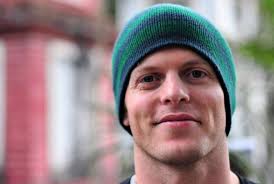Nuggets of Wisdom

This semester has nearly passed by and with another tick of the second hand on the clock, another year of coaching had passed. Throughout the year, I keep accurate notes on everything from: leadership development, my staff’s performance, athlete/team progress, and a wide variety of other topics and metrics. I’m a firm believer of journaling and recording information. Peter Drucker said it best, “What gets measured, gets managed.” The mind is a fragile thing and it prefers to remember the good things over negative experiences. That’s our recall-bias protecting our egos.
As I reflect back, there are a number of journal entries that influenced me to write this post. I want to a few of them with you today.
Finding a Mentor (Somebody Really Smart)
I’m fortunate enough to have a group of colleagues (near and distant) who are willing to help me develop and grow. I’m indebted to them for the knowledge they instilled and shared. They believed in me (or were gutsy enough to take a risk) and allowed me the opportunity to learn and grow. If you find yourself without such a support team; I would encourage you to reach out to your network and volunteer your time to help them in any way.
I do believe in karma. Doing good for others has always paid dividends in the long run. I guarantee, if you start doing good for others with no intentions of them reciprocating, good karma will find you. If you happen to build a relationship with a person who is more knowledgeable than you in a given subject, when the opportunity is there for this person to take on a mentee; you’ll have earned your shot.
Find a Mentee (Pay it Forward)
Think of mentoring as investing in future karma. There has been nothing more gratifying than helping others succeed. Isn’t that why we are in coaching to begin with? Watching others professionally succeed is rewarding like no other. Take on a mentee and challenge their beliefs, philosophy, education, and fortitude. Allow for them to grow into the position, take calculated risks, and experience the successes and failures within their field. Invest in people, not equipment.
Invest in your Team (Continuing Education)
I know it looks like a small fortune to send staff to clinics, conferences, workshops, and across the globe. I’m begging you today to not take this piece of advice lightly. Investing in your team’s education pays HUGE dividends. My argument? I’ve seen some of the most expensive and technologically advanced equipment being wrongly utilized by coaches who invest solely in equipment and not education. The coaches who invest in continuing education are the ones who cultivate a program filled with future professionals who are talented.
Invest in Yourself (Don’t Neglect Numero Uno)
This statement could go a number of different ways. Invest in yourself professionally, emotionally, educationally, etc. My last recommendation was continuing education for your team but that also includes your attendance. There are a number of great DVDs, workshops, and online material out there. Invest in your family and friends and the relationships that have been built. Treat everybody like a garden because in life you reap what you sow. Are there relationships that are starving for sunlight and water? Take an accurate assessment of your body. Have you been sacrificing yourself for others? Should you be eating better, lifting more, training harder, studying more, etc.? Make it a mission in 2012 to carve out time for you personally every day. A better you creates a better coach for your athletes.
Challenge Your Own Beliefs (Be Proactive)
“If in the last few years you haven’t discarded a major opinion or acquired a new one, check your pulse. You may be dead.” - Gelett Burgess
I often ask my team to approach my office whiteboard and brainstorms areas of our department and program that can be better and more efficient. I purposely look at research that counters what I do and how I coach in order to challenge my beliefs. Too often, I find coaches only read the research that supports their cause and disregards anything other. I approach every piece of information with a “beginner’s mind”.
This doesn’t mean I change often or jump from one fad to another. On the contrary, it often supports my progressive thought process and practice within the strength and conditioning field. Shunryu Suzuki author of Zen Mind wrote, “In the beginner’s mind there are many possibilities, in the expert’s mind there are few.”
80/20 Principle (Become Efficient)
New York Times bestselling author Tim Ferriss of The 4-Hour Workweek and The 4-Hour Body repopularized the 80/20 principle; which is a shorthand series of observations by political economist; Vilfredo Pareto. Pareto noted that 20% of his country’s population owned nearly 80% of its wealth. He later went on to find this distribution in nearly every other domain.
So how does the 80/20 Principle apply to Strength & Conditioning?
Dan John is a brilliant man. If you were fortunate to be at his workshop in Utah, he mentioned something so casually, yet brilliant, it probably went unnoticed. Imagine you were a prisoner of the state who was locked up 23 hours and 45 minutes a day in isolation. You have ONLY 15 minutes to workout a day in order to plan your escape. What you would do?
I’m guessing your naming 2-3 of the most important things. You’ve effectively cut through the clutter and fluff and isolated your MOST IMPORTANT 20% of exercises that produce 80% of your results. Now do the same for your athletes. What should you be concentrating on the most?
